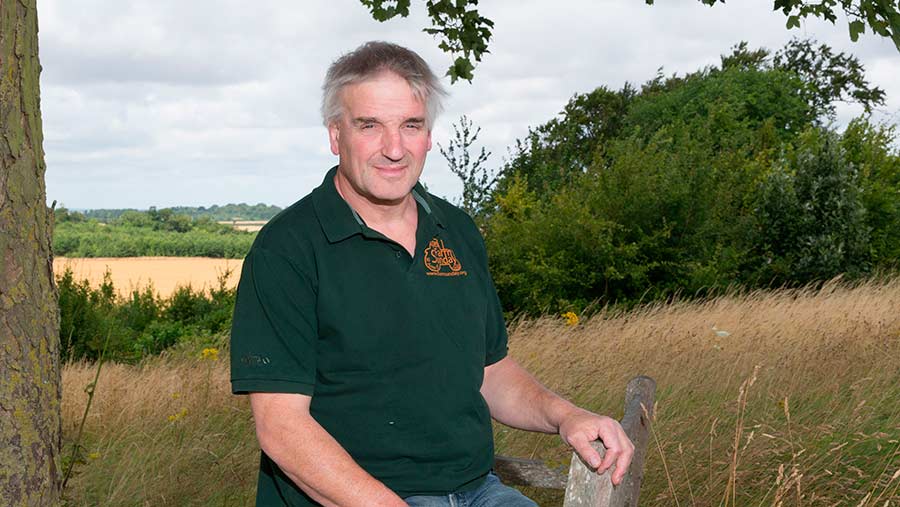Farmer Focus: Cropping tweak sees more rye than wheat
 Robert Law © Tim Scrivener
Robert Law © Tim Scrivener While politicians are slogging it out as to whether we are going to have a “hard or a soft” Brexit, most of us are resigned to the fact that our support payments will fall after 2020 and what continues after that will be directed more to the environment.
The post Brexit “honeymoon” that we are enjoying at present through a weakening sterling lifting 2016 Basic Payment Scheme payments and commodity prices was not what we expected four months ago, but will help us all get prepared for post 2020.
See also: Read more from our Arable Farmer Focus writers
A shift to more environmental funding, which is being backed by many of the 53 non-governmental organisations and other bodies who contributed to the recent State of Nature report, makes me scratch my head.
On our own farms where we have participated in environmental stewardship since its inception, we are about “maxed” out on schemes and options.
Autumn work has continued apace on the farms and almost uninterrupted by the weather. The main change for 2017 has been the increase in our rye acreage. In fact, we have drilled more rye than wheat.
We will have sown five different varieties for seed, which has come about through the increased demand for anaerobic digester rye crops.
This crop has proven to be a better alternative to wheat on our lighter land and after later lifted sugar beet. On our poorest sands in Hertfordshire and Nottinghamshire, we are growing it almost continuously.
I was fortunate in joining the other 1,200 plus attendees at the Farmers Weekly awards last week in London to see 45 finalists jostling for the 15 awards.
There were so many positive stories to be told at this uplifting event. It was certainly good to see Defra minister Andrea Leadsom attending what must have been an eye-opening event for her.
Over 45 years of farming and rugby seem to have taken their toll. After a somewhat increasingly agonising summer, an MRI scan revealed four displaced discs. Fortunately, an epidural injection into my lower back has relieved a lot of the pain.
I haven’t yet thrown away the rugby boots, but their future looks very uncertain. Being contacted every week asking about my availability for the following Saturday afternoon has certainly been very frustrating.
Robert Law farms 1,700ha on the Hertfordshire, Cambridgeshire and Essex borders growing cereals, mustard, a range of forage crops for seed, sugar beet, up to 200ha of catchcrop stubble turnips and 300ha of grass supporting a flock of 2,500 ewes. All land farmed is in environmental stewardship schemes. He also manages 500ha of sandland in Nottinghamshire.
